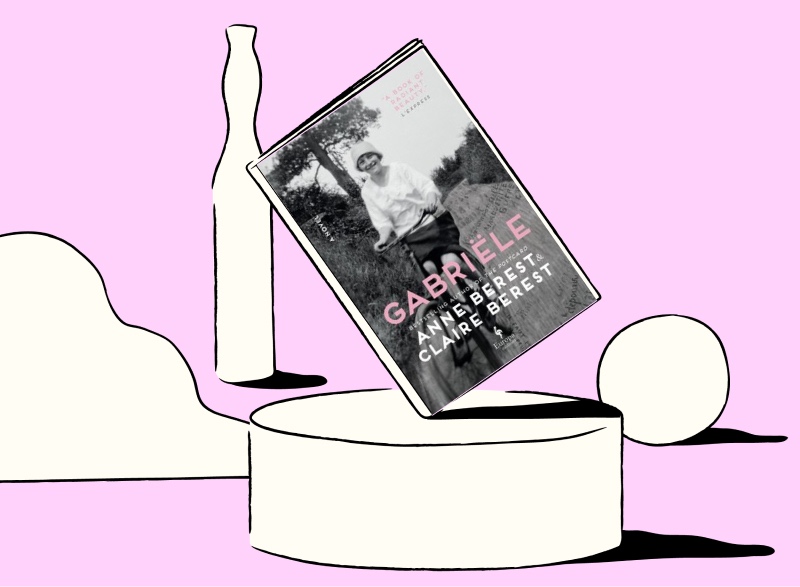- New Arrivals
Fiction
- Historical FictionCrime & ThrillersMysteryScience-FictionFantasyPoetryRomanceChildren’s BooksYoung Adult
- Biographies & MemoirsHistoryCurrent AffairsTech & ScienceBusinessSelf-DevelopmentTravelThe ArtsFood & WineReligion & SpiritualitySportsHumor
Children’s Books
Lists
Blog
Gift Cards
My Lists
Games
The co-op bookstore for avid readers
The Berest Sisters Explore a Family Legend in Gabriële
Originally published in France in 2017 and now available in English, Gabriële is a biographical novel from Anne Berest—author of the international bestseller The Postcard—and her sister, Claire Berest. Together, they tell the story of their great-grandmother, Gabriële Buffet-Picabia, a composer, writer, and key figure in the birth of modern art.
At the center of Paris’s avant-garde in the early 1900s, Gabriële married painter Francis Picabia and formed a profound bond with Marcel Duchamp. Though her influence shaped the creative revolutions of the time, Gabriële’s contributions were long overlooked. Through archival research and personal history, the Berests bring her to the forefront—not just as muse, but as artist, theorist, and provocateur.
This richly layered novel blends history, family memory, and a portrait of a woman who challenged every convention of her time.
Praise for Gabriële
“The Berest sisters assemble the story of her remarkable life from historical documents, family records and interviews... Like Gabriële herself, this book takes on big ideas about modern art and modern life—without losing sight of the people caught and crushed in those turning gears.” —The New York Times
“An atmospheric excavation of an unusual woman and marriage, both intriguing and remote.” —Kirkus Reviews
“The Berest sisters follow up Anne’s The Postcard with a colorful portrait of their great-grandmother Gabriële Buffet-Picabia. With lyrical prose, the Berests blend historical context with more intimate insights, such as their attempt to understand why the Picabias were cold to their children.” —Publishers Weekly
“Gabriële was a powerful woman who has been kept in the shadows of history. It is time to bring her back into the light, [with] this beautiful and radiant book.” —L’Express
“Wonderful! Two sisters, both novelists, have brought Gabriële Buffet back to life, their words intertwining with luminous tenderness in this finely crafted novel.” —L’OBS
“Gabriële is at once a beautiful epic, an intimate family saga, and a meticulous investigation… the story of a turbulent time when everything seemed possible.” —Le Parisien
We were honored to have the book's acquiring editor, Michael Reynolds, discuss this novel in our Tertulia's First Dibs Editors Salon—our exclusive preview of the season’s must-read books— read on for his personal note:
Editor's Note
By Michael Reynolds, Executive Publisher at Europa Editions.
While accompanying Anne Berest to some of the events on her 2023 US tour for The Postcard, a book that went on to become a national bestseller, one of Europa’s major successes of the last decade, and a novel that was exceptionally well regarded by critics, I noticed something strange. There were of course quite a few French people or French speakers in her audiences, and while they were thrilled by the success of The Postcard and full of compliments for that book, they also never failed to mention how important a book Anne had written with her sister Claire a couple of years earlier had been for them. Gabriële had been life-changing, they said, or variations on that theme. I hadn’t read the book and honestly didn’t know much about it, but my publishers’ ears perked up, and I asked Gabriële’s French publisher to send me a copy toute de suite.
Gabriële is like The Postcard in many ways—it is a propulsive, true novel based on well documented facts and family history that brilliantly balances an intimate narrative with a big, sweeping 20th-century story. However, in important, ways it is a very different book. Gabriële tells an exuberant, daring, freeing story about one of France’s most remarkable women and the people she knew, loved, and collaborated with. It is a celebratory book about love and creativity, a quest for the essential, elusive truth of a complex woman’s life, and a novel with a bold question at its heart: what connection exists between new ways of loving and living and new ways of thinking and creating?
To my mind, Gabriële resembles The Postcard in one other important way—it feels like the right book at the right time. In this current cultural and political climate, which leaves many of us feeling isolated, constrained, and guarded, it is a hospitable, audacious, liberating book about incredibly fearless people and, in particular, one complex and truly singular woman. When I first read it I experienced Gabriële as a welcome and wonderful gift. I hope to be able to pass that gift on to many readers here this spring.

